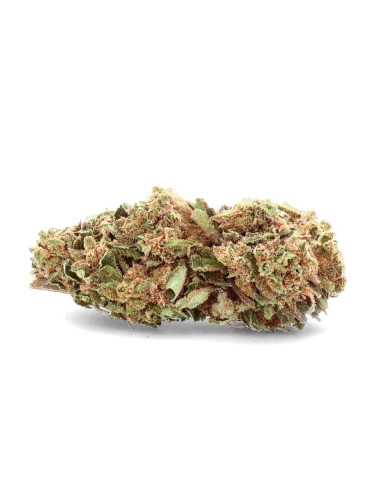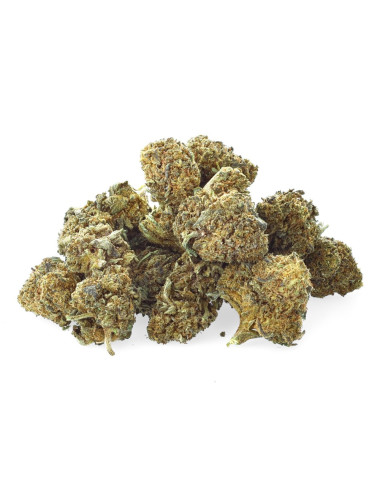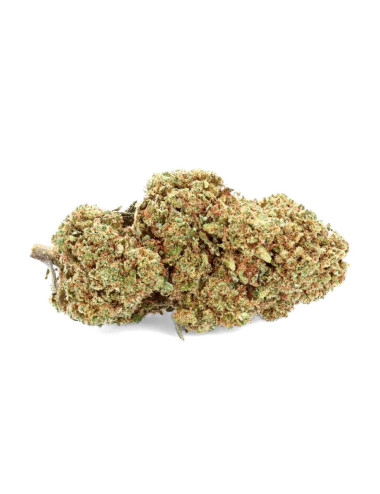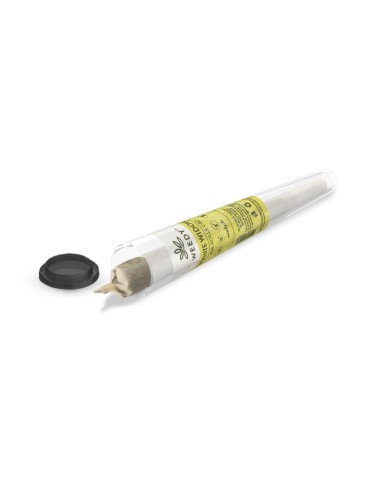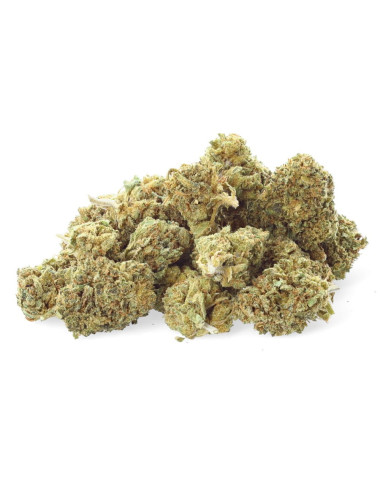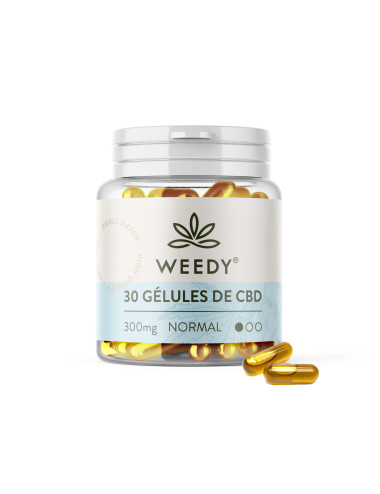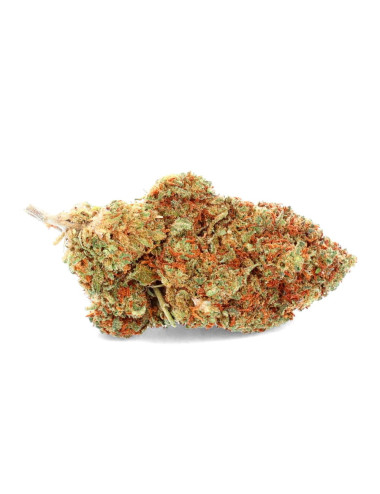Is CBD legal in France?
Cannabis is a complex plant with properties that are as fascinating as they are frightening. However, we only fear what we don't know. This is one of the main problems with cannabis, whether it is legal or not. It must be said that with over 400 chemical components, even the scientific community is sometimes baffled by this botanical masterpiece. Added to this are endless derivative products that further confuse non-experts. Weedy.fr its knowledge of the cannabis sector in a single article and provides you with a cannabis glossary that will help you understand it better.
With the development of the market and the multiplication of cases, the situation has changed, and French and European laws now define more precisely what is possible and what is prohibited. Without prolonging the suspense any further, let's be clear: CBD is authorized in France.
There are, however, a few specifics worth knowing. This comprehensive guide reviews the history of CBD legislation in France and goes into detail about what is authorized in the European Union (EU).
CBD banned? What does the law say about CBD in 2024?
In 2022, CBD is 100% legal in France as in the rest of the European Union. The situation hasn't always been so clear, however, especially at the start of the cannabidiol market expansion in 2017/2018. Since then, however, a lot of water has flowed under the bridge.
The differences between the French legislative framework and the supranational law of the European Union (EU) have gradually disappeared, and all governments now agree that CBD is legal.
It is therefore possible to sell, buy and consume cannabidiol without the risk of being subject to any form of control. However, two things remain prohibited:
- The marketing of products derived from hemp varieties not certified by the EU and/or containing more than 0.3% THC.
- Combustion of CBD products, even legal ones: in other words, no joints of CBD flowers or resins, as smoking is prohibited. Other modes of consumption (vaporization, infusion, cutaneous application, ingestion) are authorized.
Let's take a closer look at the legislation in force throughout Europe, and then in France.
CBD legislation in Europe
All European countries must apply the law in the same way
Europe is none other than the second largest CBD market in the world, behind North America. At EU level, CBD legislation is mainly based on a clear distinction between the different cannabinoids.
THC (and its acid form, THCA), considered a narcotic, is banned because of its psychoactive effects and the addiction it can provoke in users. Other cannabinoids, and CBD in particular, are authorized, as they present no known health risk.
In a statement issued in November 2020, the Court of Justice of the European Union (CJEU) reminds us:
"According to the current state of scientific knowledge, which must be taken into account, unlike tetrahydrocannabinol (commonly known as THC), another cannabinoid in hemp, the CBD in question does not appear to have any psychotropic effect or harmful effect on human health."
Within the EU, CBD is therefore not prohibited. This is an essential first step, since European law takes precedence over French law (in this case, supranational law). This protects the fundamental right of free movement of people and goods within the Union.
CBD legislation in France: what does the law say?
It's no secret that the French government isn't exactly a fan of CBD. This is because CBD is still almost systematically associated with marijuana, even though many varieties of hemp are now EU-certified and devoid of psychotropic effects.
The law on cannabidiol is evolving slowly, with a few twists and turns along the way, but all agreeing that the CBD molecule is perfectly legal.
On December 30, 2021, the MILDECA (Mission interministérielle de lutte contre les drogues et les conduites addictives) published a decree announcing the introduction of a new regulatory framework.
Its aim is clearly stated: to protect consumers and combat drug trafficking, while encouraging the development of the cultivation, industrial production and marketing of hemp extracts.
These are major breakthroughs, which should generate significant economic benefits for CBD hemp growers, while satisfying the needs of CBD consumers in terms of local production, quality and price.
CBD banned in France? What is legal and what remains prohibited
- "The cultivation, import, export and industrial and commercial use of hemp are authorized.
- The maximum THC content is 0.3%.
- All parts of the hemp plant can be used to produce by-products (only seeds and stalks were included in the previous decree, which prohibited the use of flowers and leaves).
- Only farmers have the right to grow hemp, and only certified seeds registered in the official catalog.
- The sale of CBD hemp plants and cuttings remains prohibited.
The Conseil d'Etat also suspended the ban on selling CBD leaves and flowers from authorized varieties in their raw state, citing the disproportionate nature of this general ban.
Consumers are therefore in the right when they buy CBD flowers or hemp infusions.
History: understanding the evolution of CBD legislation in France
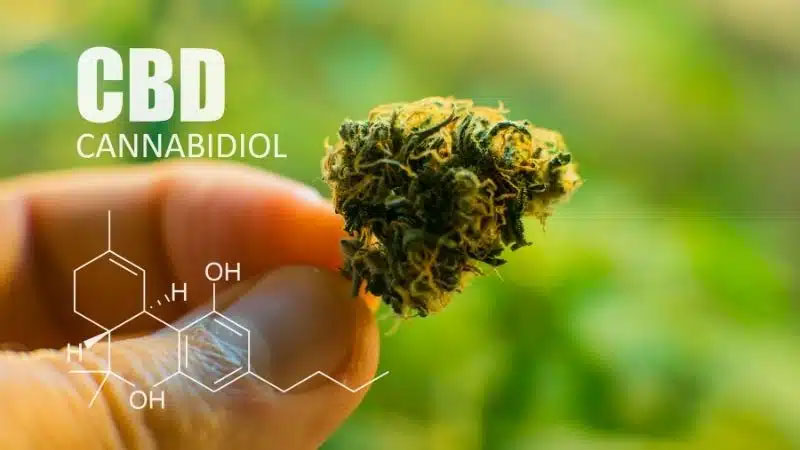
2017
In 2017, the CBD market is still in its infancy. However, a store in Dijon is helping to establish French jurisprudence. Charged with drug trafficking for selling CBD flowers, its owner was indeed acquitted thanks to European law. At the time, it stated that "products containing less than 0.2% THC, the psychotropic substance in cannabis" were authorized in Europe. For the first time, we can speak of legal CBD in France.
2018
MILDECA officially confirms the authorization and marketing on French soil of cannabis-derived products with a THC content of less than 0.2%. This cannabidiol law applies only to theuse of seeds and fibers, and only if the species is listed among the authorized hemp varieties.
2019
During a visit to the Creuse region of France, Prime Minister Édouard Philippe mentioned the government's intention to study potential cannabinoid-based treatments, including CBD. He also points out that it would be absurd not to encourage scientific research on the subject.
2020
The legal uncertainty surrounding the marketing of CBD flowers persists. The European Court of Justice has ruled that France hasno valid reason to prohibit the import of hemp-derived products legally produced in other member states. Beyond the issue of free movement within the EU, it is the argument that CBD is harmless that is put forward.
2021
Planned earlier, but delayed due to the Covid-19 pandemic, the first experiment involving medical cannabis is finally launched in March 2021. It will involve 3,000 patients suffering from pain linked to multiple sclerosis, epilepsy or cancer, and is due to last at least two years.
If validated, this experiment could well put a definitive end to the false reputation of CBD banned in France, and target a patient base of one million French people.
Beyond CBD: would cannabis legalization benefit France?
The French government is notorious for sometimes finding it hard to innovate, and for its tendency to look at what's going on elsewhere before deciding whether or not to adopt a fundamental change such as the more general legalization of cannabis.
Luxembourg has already planned to legalize recreational cannabis. Germany's first post-Merkel government is planning decriminalization from 2024. Italy is relying on public opinion through a referendum, and has already authorized cultivation for personal use since 2019.
As a result, it won't be long before the debate is back on the political table. While former French President François Hollande did not use his time in office to change things on this subject, he has since explained at length why, in his view, decriminalization without legalization would be counterproductive. At the same time, he has come out in favor of total, controlled decriminalization.
Whatever happens, the benefits would be significant for the French CBD market.
Economic benefits of legalization for the CBD market
Unlike CBD, cannabis as a narcotic has always been banned in France. But textile and agricultural hemp have long been cultivated in France.
This form of hemp contains insignificant levels of THC, but is generally rich in cannabidiol (CBD) and other non-addictive, non-psychoactive cannabinoids (notably CBG ).
Further proof that CBD is not banned in France, the country is Europe's largest producer of hemp, and the world's second largest after China.
With the explosion in the sale of cannabidiol and a European law that tolerates the CBD trade, we should find more and more CBD-derived products in France. Particularly in the cosmetics and food industries. An opportunity for French agriculture? Everything suggests so.
Indeed, French farmers see hemp cultivation as a market with numerous outlets. On the one hand, the crop would absorb significant quantities of carbon dioxide, but it would also be far more lucrative than other widespread crops, such as wheat.
Moreover, the cultivation of textile hemp is so controlled in France today, that the country currently imports most of its hemp requirements from neighboring countries.
It's a fact that raises questions among farmers. They are hopeful that the French authorities will modify these regulations so that they too can get involved in this tempting business.
To conclude on CBD legislation in France
CBD legislation changes regularly, gradually softening in favor of the cannabinoid
Until now, the French government has been cautious about CBD and other products derived from hemp cultivation. A caution, or rather a timidity, that is often difficult to understand in the face of the apparent harmlessness of CBD intake.
Well beyond the opinion of CBD consumers and those who favor it, this is also the position defended by the CJEU.
It must not be possible for another member country to ban a substance legally produced in Europe on the basis of mere hypotheses.
To put it simply, if France wishes to ban CBD or any of its derivatives in the future, it will first have to prove, with an abundance of scientific data, that a real risk to public health exists. The risk is extremely slim since, since the discovery of cannabidiol in 1963, no major scientific study has demonstrated any addictive or psychoactive effects, or any danger whatsoever to health.
What you need to know about CBD legislation
- All hemp varieties authorized for industrial and commercial use are regulated and listed.
- All parts of the plant (flowers, leaves, seeds and fibers) can now be used industrially.
- Manufacturers and sellers of products containing CBD are not allowed to make therapeutic claims or indicate that they are medicines.
- It is also forbidden to advertise the therapeutic virtues of CBD, except in the case of medicines authorized by the ANSM or the European Commission.
- The maximum THC level authorized is 0.30%, in France as in the rest of the EU.
Weedy.fr guarantees
Weedy.fr a brand based in Italy. All products offered in our CBD store comply with all legal requirements in France and the EU.All our products undergo rigorous testing using various methods(gas chromatography, thin-layer chromatography) to certify that they contain legal levels of THC.
At Weedy.fr, we offer CBD in the form ofCBD e-liquids,CBD oils,CBD pollen, andflowers. However, CBD flowers and resins are not intended to be smoked.
Our products are vacuum-packed and sealed in neutral envelopes to guarantee maximum discretion. They're delivered within 72 hours, and you won't have to worry about customs, since our products benefit from European law on the free movement of goods within EU member states.
We guarantee that our products are 100% legal under European law and of the highest quality.
In the event of non-compliance of a product sold, it may be returned to Weedy.fr will take it back, exchange it, or refund it.
All claims, requests for exchange or refund must be made electronically to the following address: [email protected]within thirty days of delivery.
The sale of products presented on the Weedy.fr website Weedy.fr strictlyprohibited to anyone under the age of 18.All products bearing the words "Cannabis CBD" in their name are flowers intended for decorative purposes.
They must not be smoked or consumed. Weedy.fr be held responsible for the misuse of its products.



